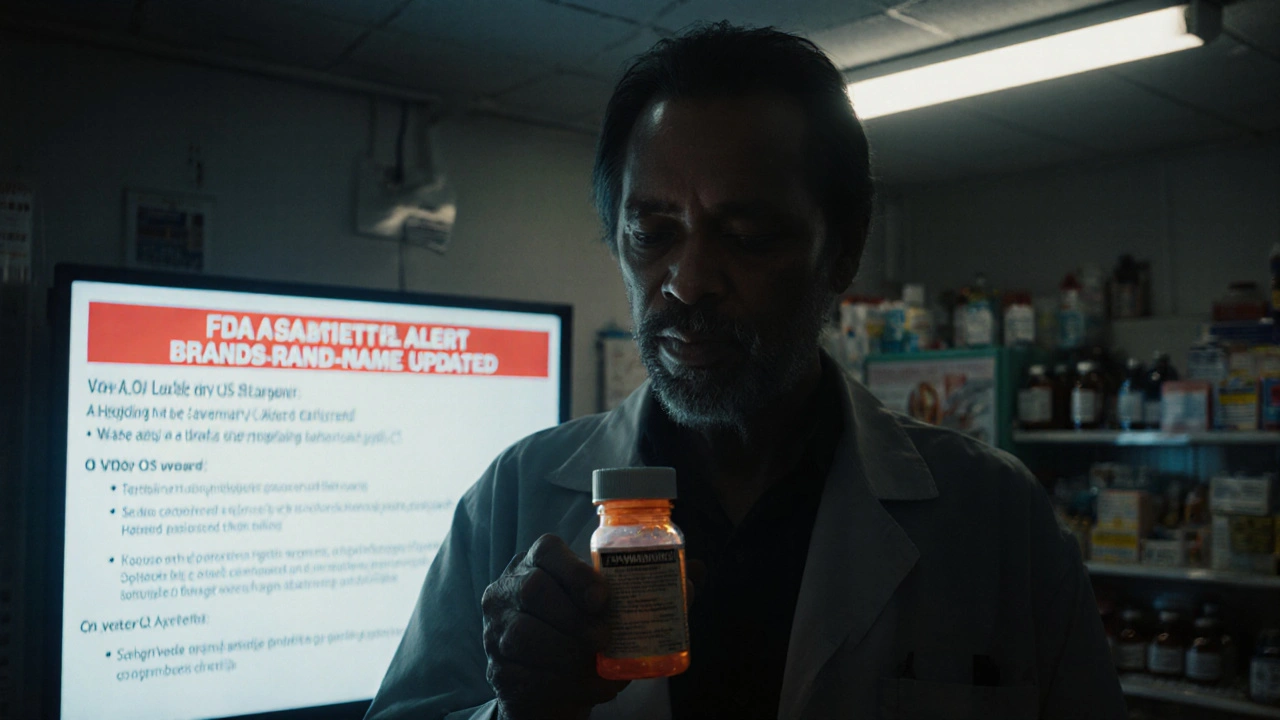MedWatch Program: How to Report Drug Side Effects and Stay Safe
When a medication causes harm, the MedWatch program, the FDA’s official system for collecting reports of adverse drug reactions and medical device problems. Also known as FDA MedWatch, it’s the primary way patients and healthcare providers alert regulators to dangerous side effects that weren’t caught during clinical trials. This isn’t just bureaucracy—it’s a lifeline. Every report helps the FDA spot hidden risks, update warning labels, or even pull a drug off the market.
The FDA, the U.S. agency responsible for approving and monitoring drugs and medical products doesn’t wait for perfect data. It relies on real-world reports. That’s why your report about a strange rash after taking a new blood pressure pill, or sudden dizziness from a generic antibiotic, matters. These reports feed into the FAERS database, the FDA’s database of adverse event reports used to detect safety signals. Without these reports, problems like nitrosamine contamination or rare bone marrow failure from drugs like chloramphenicol might go unnoticed for years.
You don’t need to be a doctor to file a report. If you or someone you know had an unexpected reaction—whether it’s itching from an opioid, serotonin syndrome from mixing St. John’s Wort with an SSRI, or unexplained bruising after starting a new medication—you can submit it online in minutes. The system is built for real people, not just hospitals. And when thousands of similar reports pile up, the FDA acts. That’s how they found out about dangerous interactions with generic drugs, why some antibiotics trigger C. diff, and why certain statins cause muscle damage in people with specific genes.
What you’ll find below is a collection of real cases where drug safety issues were uncovered—not by lab tests, but by patients speaking up. From recalls over nitrosamines to rare but deadly reactions like aplastic anemia, these stories show why MedWatch isn’t just a formality. It’s your voice in a system that needs to hear you. Whether you’re managing a chronic condition, switching generics, or just wondering if that new side effect is normal, the reports here show what happens when people stop ignoring the warning signs—and start reporting them.
FDA Safety Alerts: Understanding Communications About Generic Drug Problems
FDA safety alerts for generic drugs often lag behind brand-name versions due to outdated labeling rules. Learn how generics are monitored, why warnings may be delayed, and what patients can do to stay safe.
About
Medications
Latest Posts


Malignant Hyperthermia and Anesthesia: What You Need to Know About This Life-Threatening Reaction
By Orion Kingsworth Feb 7, 2026

How to Safely Buy Cheap Generic Zoloft Online in 2025
By Orion Kingsworth Oct 12, 2025

VA Generic Coverage: How Veterans Affairs Formularies Control Prescription Costs and Access
By Orion Kingsworth Jan 14, 2026

